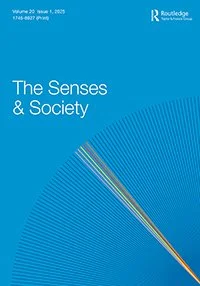
The Body Beyond the Face: Rethinking Multispecies Connections through Sensory Ethnography
Read the article here.
Focusing on the body beyond the face allows multispecies anthropology to embrace a multisensory perspective, opening new possibilities for detecting and understanding the subtleties of interspecies connectedness. The body, transcending any single sense, reveals its multisensorial potentialities: touch evokes emotions, sight inspires visions, hearing deepens into attentive listening, taste fosters companionship, and smell rekindles memories. Drawing on Gilles Deleuze and Félix Guattari’s views on the body and my ethnographic work with pigeons and donkeys in Pakistan, this article contends that a bodily oriented, sense-based approach has the potential to generate new forms of knowledge and reimagine relationships that transcend species boundaries.
Key Questions
How can emphasizing the sensory capacities of the body enhance the scholarly investigation of more-than-human interrelationships?
In what ways does multisensory anthropology offer new methodological practices for experiencing worlds beyond humans in affective, ethical, and creative ways?
Inspirational Texts
Deleuze, Gilles, and Félix Guattari. 1987. A Thousand Plateaus: Capitalism and Schizophrenia. Translated by Brian Massumi. Minneapolis: University of Minnesota Press.
Viveiros de Castro, Eduardo. 2014. Cannibal Metaphysics. Translated by Peter Skafish. Minneapolis: Univocal Publishing.
Inspirational Quotes:
“We know nothing about a body until we know what it can do, in other words, what its affects are, how they can or cannot enter into composition with other affects, with the affects of another body, either to destroy that body or to be destroyed by it, either to exchange actions and passions with it or to join with it in composing a more powerful body. ”

